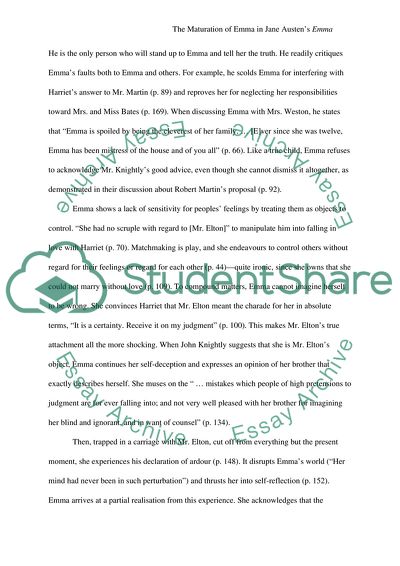Cite this document
(“The Maturation of Emma in Jane Austens Emma Essay”, n.d.)
The Maturation of Emma in Jane Austens Emma Essay. Retrieved from https://studentshare.org/literature/1535543-the-maturation-of-emma-in-jane-austens-emma
The Maturation of Emma in Jane Austens Emma Essay. Retrieved from https://studentshare.org/literature/1535543-the-maturation-of-emma-in-jane-austens-emma
(The Maturation of Emma in Jane Austens Emma Essay)
The Maturation of Emma in Jane Austens Emma Essay. https://studentshare.org/literature/1535543-the-maturation-of-emma-in-jane-austens-emma.
The Maturation of Emma in Jane Austens Emma Essay. https://studentshare.org/literature/1535543-the-maturation-of-emma-in-jane-austens-emma.
“The Maturation of Emma in Jane Austens Emma Essay”, n.d. https://studentshare.org/literature/1535543-the-maturation-of-emma-in-jane-austens-emma.


